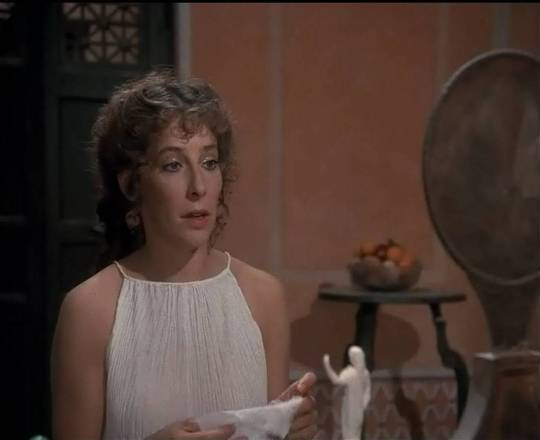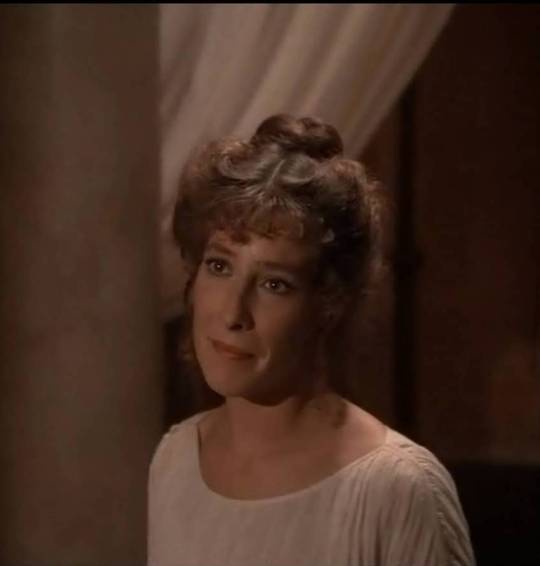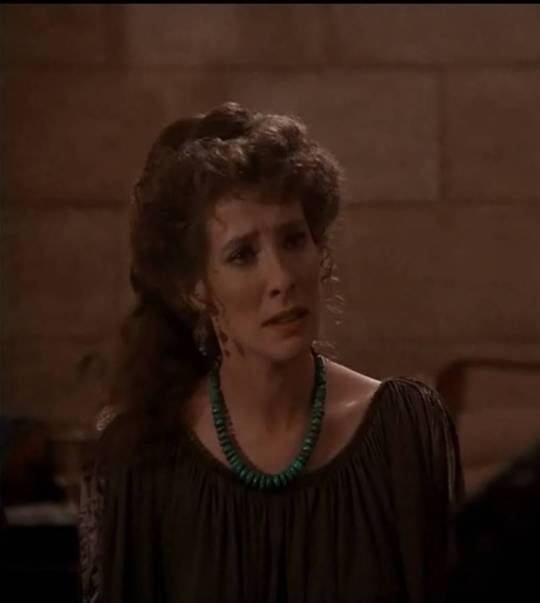#claudia procula
Explore tagged Tumblr posts
Text
HER STORY: Christ's Ministry, The Wife of Pilate
Though the Bible does not give us much information about Pilate’s wife, she does appear in a number of ancient accounts that arose in the first few centuries of Christianity. #Claudia #WifeofPilate #Procula #PontiusPilate
Of the several influential women in the Bible who are not given names—Job’s wife, comes to mind—the wife of Pilate is perhaps the most shadowy. All that is known of her from the scriptures is her relationship to the Procurator Marcus Pontius Pilate, and the message she sent to him while he was sitting on the Seat of Judgment in the Praetorium the morning Jesus of Nazareth was tried for…

View On WordPress
0 notes
Text
Pilates wife

View On WordPress
1 note
·
View note
Text
In Shakespeare’s Sisters, Ramie Targoff recovers to literary memory the lives and talents of four women who wrote in England during Shakespeare’s time, well before there was any notion of “a room of one’s own.” From Mary Sidney, sister of the well-known poet Sir Philip Sidney (she wrote most of the beautiful translations of the Psalms ascribed to him) to Anne Clifford, a diarist and memoirist who fought for decades against a patriarchy that tried to disinherit her from her family’s land, these women stun us by their bravery. In the passage below, Targoff discusses the important poetry of Aemilia Lanyer, born of an illiterate mother and an immigrant father; it appeared in print in 1611, making her the first woman in the 17th century to publish an original book of verse.
. . .
In the same year the King James Bible first appeared in print, establishing the most influential English translation of scripture ever produced, Aemilia dared to tell a different story. Over the course of 230 rhyming stanzas of eight lines each, her “Salve Deus Rex Judaeorum” lays out the story of Christ’s Passion from a distinctly female perspective. The formal challenge of writing the poem was itself daunting: it’s no easy feat to compose over 1,800 lines of ottava rima (iambic pentameter stanzas written in an abababcc rhyme scheme). But Aemilia’s greater audacity was in tackling the subject of Christ’s crucifixion. To justify this, she makes the same claim for divine inspiration that the great Protestant poet John Milton would make sixty or so years later in writing Paradise Lost. Describing her own “poor barren brain” as “far too weak” for the task, she asks God to “give me power and strength to write”:
Yet if he please to illuminate my spirit, And give me wisdom from his holy hill, That I may write part of his glorious merit, If he vouchsafe to guide my hand and quill Then will I tell of that sad blackfaced night, Whose mourning Mantle covered Heavenly Light.
Given the fact that the poem proceeds to do exactly what she petitions for, Aemilia shows her reader that her prayer has been answered: she’s not so much writing as channeling the divine word.[...] Aemilia’s narrative of Christ’s Passion begins on the “very night our Savior was betrayed.” As part of her overall strategy in “Salve Deus”of celebrating female virtue, the poem draws attention both to the wicked acts of men (Caiaphas, Judas) and to the compassionate acts of women (the daughters of Jerusalem, the Virgin Mary) in the days leading up to Christ’s arrest. None of this comes as a surprise. But when Aemilia arrives at the moment that Pontius Pilate considers Christ’s fate, she does something totally unanticipated. Relinquishing her own role as narrator, she hands the poem over to Pilate’s wife. Among the most minor figures in the New Testament, Pilate’s wife has a single line of verse in only one of the four gospels. In Matthew 27:19, a woman who is never named urges her husband, the Roman governor in Judaea, to disregard the will of the people calling for Christ to be crucified: “Have nothing to do with that just man,” she warns Pilate, “for I have suffered many things this day in a dream because of him.” In early Christian commentaries and apocryphal writings, this woman was often called Procula Claudia, or simply Procula. In medieval England, Procula was paraded onstage in the mystery plays as an evil woman who almost prevented Christ’s saving humankind; in the York Cycle’s play named for her—The Dream of Pilate’s Wife—Percula, as she’s called there, receives her dream from the Devil himself. There’s no way to know if Aemilia knew this or other medieval dramas; it’s more likely she would have noticed the more positive treatment Pilate’s wife was given in the Geneva Bible, the popular translation done by English Protestants in the 1550s. Consistent with the Protestant belief that everyone should have access to the Bible directly, the translation was heavily glossed with marginal notes. Next to the verse from Matthew regarding Pilate’s wife was a single gloss suggesting that Pilate should have taken the “counsel of others to defend Christ’s innocence.” But whether the treatment of this woman was negative or positive, she had never been asked to perform the role Aemilia gave her in “Salve Deus,” where she delivers one of the strongest defenses for women’s rights that Christianity had ever seen. In Pilate’s wife, Aemilia found her perfect heroine: a woman whose intervention at the crucial moment could have changed the course of history, if only her husband had listened. With the scriptural verse from Matthew before her, Aemilia made two crucial additions to the story. First, she transformed Pilate’s wife into a faithful believer who already regarded Christ as her Lord. “Hear the words of thy most worthy wife,” she begs her husband, “who sends to thee, to beg her Savior’s life.” Far from simply reporting that she’s had an ominous dream, as she does in Matthew, Pilate’s wife explicitly warns Pilate that he will be killing the son of God. Second, Aemilia turned Pilate’s wife into a proto-feminist. After urging Pilate to let Christ go on religious grounds, she comes up with a new reason for why he should be pardoned: “Let not us women glory in men’s fall / Who had power given to over-rule us all.” If men are sinful enough to crucify their savior, then women should be liberated from men’s rule. “Your indiscretion sets us free,” she declares, “And makes our former fault much less appear.” In these four short lines, Aemilia’s character anticipates the killing of Christ as the basis for women’s freedom from patriarchy. As if this weren’t radical enough, Pilate’s wife moves in “Salve Deus” from making her argument about the Crucifixion to recon- sidering the reason for Christ’s sacrifice in the first place. “Our mother Eve,” she exclaims,
. . . who tasted of the Tree Giving to Adam what she held most dear, Was simply good, and had no power to see, The after-coming harm did not appear.
If Eve had no way to know the damage she might do, Adam was only too aware: it was he who received the command directly “from God’s mouth.” Eve was simply a victim of misinformation and “too much love,” whereas Adam, not betrayed by the “subtle Serpent’s falsehood,” knew exactly what he was doing. Aemilia was certainly not the first person to defend Eve on grounds of her innocence or to propose that Adam be held responsible for the Fall. She was possibly the first to argue that the crime of killing Christ so overwhelmed any fault of Eve’s that women’s subordination should come to an immediate end. “If unjustly you condemn [Christ] to die,” Pilate’s wife concludes,
. . . Then let us have our Liberty again, And challenge [attribute] to your selves no Sovereignty; You came not in the world without our pain, Make that a bar against your cruelty; Your fault being greater, why should you disdain Our being your equals, free from tyranny? If one weak woman simply did offend, This sin of yours, hath no excuse, nor end.
Hundreds of years before the women’s liberation movement, Aemilia used the figure of Pilate’s wife to argue that the sexes should be equal. In doing so, she also rescued a voice from history, giving full personhood and agency to a woman whom the Bible didn’t regard as worthy of a name.
More on this book and author:
Learn more about Shakespeare’s Sisters by Ramie Targoff.
Browse other books by Ramie Targoff and follow her on Instagram @ramietargoff.
Hear Ramie Targoff read at the Boston Athenaeum in Boston on May 15, 6:00 - 7:00 PM. Click here to join virtually.
Visit our Tumblr to peruse poems, audio recordings, and broadsides in the Knopf poem-a-day series.
To share the poem-a-day experience with friends, pass along this link.
#poetry#knopf#poem-a-day#knopf poetry#national poetry month#poetry month#knopfpoetry#poem#ramie targoff#targoffaudio#shakespeare's sisters#shakespeare
12 notes
·
View notes
Text
I actually enjoyed in this episode how when you place her next to Joanna, Claudia Procula gets to be the vaguely offputting unlikable aristocrat
14 notes
·
View notes
Text
CLAUDIA PROCULA, ESPOSA DE PONCIO PILATOS SAI EM DEFESA DE JESUS E DIZ AOS FARISEUS: «Qual de vocês está esquecendo que é escravo de Roma?»
Jesus está agora no meio de uma multidão de crianças olhando para Ele em êxtase; tantos rostinhos olhando para Ele, tantos olhos inocentes, tantas bocas sorridentes.....
JESUS De pé atrás do grupo de crianças inocentes, que não chegam até a Sua virilha, Ele parece estar se erguendo de uma coroa de pureza, para Ser O VINGADOR, como se dessa pureza estivesse tirando a força para ser assim. Ele abre os braços e grita: «MENTIROSOS! Esse homem não está doente! TE DIGO!
Descubra-o!
Ou ele estará realmente morto em um momento, por tentar enganar a Deus.»
O homem salta da maca a gritar: «Não, não! Não me mate!
Aqui, seus malditos, peguem o seu dinheiro!» e ele joga uma bolsa aos pés dos fariseus e sai correndo.....
A multidão uiva, ri, vaia, aplaude.....
O outro doente diz: «E quanto a mim, Senhor?
Forçaram-me a sair da cama e têm-me violentado, ameaçado desde esta manhã.... Mas não sabia que estava nas mãos dos vossos inimigos....»
«Esteja Curado, pobre filho, e bendito Seja!» e Ele impõe Suas mãos sobre ele, depois de abrir caminho por entre as crianças.
O homem levanta por um momento o cobertor que cobre seu corpo e olha para não sei o quê......
Ele então se levanta.
Ele está nu das coxas para baixo.
E grita e berra até ficar rouco: «Meu pé! Meu pé! Mas quem és tu, que pode devolver o que se perdeu?»
E ele se joga aos pés de Jesus.
Em seguida, levanta-se, salta precariamente sobre a sua maca e grita: «A minha doença estava a corroer-me os ossos.
O médico arrancou-me os dedos dos pés, cauterizou-me a carne e cortou-me até ao osso do joelho.
Olhar!
Veja as cicatrizes.
Mas eu morreria do mesmo jeito.
E agora...... Está tudo curado!
Meu pé foi restaurado..... Não dói mais! Me sinto bem....forte.
Meu peito está livre.... Meu coração está bom! Oh! mãe! Venha partilhar conosco a minha alegria!»
Ele começa a fugir.
Mas a gratidão o impede.
Ele volta para Jesus e beija Seus pés abençoados repetidamente, até que Jesus, acariciando sua cabeça, lhe diz: «Vai! Vá para a sua mãe e seja bom.»
Ele então olha para os Seus inimigos, que foram ridicularizados e diz: «E agora?
O que devo fazer com você?
O que devo fazer, pessoal, depois desta provação?»
As multidões gritam: «Apedrejem os ofensores de Deus! Morte para eles! Não há mais armadilhas para o Santo! Que eles sejam amaldiçoado!» e eles começam a pegar pedaços de pau, galhos, pedras, e estão prontos para jogá-los.
Jesus os impede. «Essa é a palavra das multidões.
Essa é a resposta deles.
A Minha é diferente.
Eu digo: Vá embora! Não vou sujar Minhas mãos batendo em você. O Altíssimo cuidará de você. Ele é a Minha defesa contra os ímpios.
Os culpados, em vez de calar-se, não hesitam em ofender o Mestre e, embora tenham medo do povo, gritam com raiva: «Somos judeus e somos poderosos!
Nós ordenamos que você vá embora.
Nós Te proibimos de ensinar.
Nós banimos você.
Vá embora! Chega de você aqui.
O poder está em nossas mãos e nós o utilizamos; e o usaremos cada vez mais, perseguindo-te, maldito usurpador….»
Estão prestes a dizer mais em um tumulto de gritos, lágrimas, assobios, quando a mulher mais alta velada se adianta, colocando-se entre Jesus e Seus inimigos com movimento imperioso rápido, com semblante e voz ainda mais imperioso; ela descobre o rosto e sua frase cai com mais força e açoite do que um chicote contra os escravos da galera ou um machado no pescoço:
«Qual de vocês está esquecendo que é escravo de Roma?»
Ela é Claudia.
Ela abaixa o véu novamente.
Ela se curva levemente para o Mestre.
Ela vai para junto das outras. É o suficiente.
Os fariseus se acalmam imediatamente.
Só um, em nome de todos, diz com servilismo rastejante: «Perdoe-nos, Domina! Mas Ele está perturbando o velho espírito de Israel. Como você é poderosa, deve proibi-lo e fazer com que o corajoso e justo Procônsul o proíba de fazê-lo; longa vida e saúde para ele!
«Isso não nos diz respeito.
Basta que Ele não perturbe a ordem de Roma.
E Ele não faz!» responde com desprezo Claudia ao sacerdote. Claudia dá uma ordem aos seus companheiros e se afasta em direção a um bosque de árvores no final do caminho e desaparece atrás dele.
Ela reaparece em uma carroça coberta que range, cujas cortinas ela ordenou que sejam baixadas.
«Está feliz agora que nos insultou?»
Jesus diz, pergunte aos judeus, fariseus, escribas e seus companheiros.
As multidões gritam com desprezo. José, Nicodemos e todos aqueles que provaram ser amigos - entre eles está o filho de Gamaliel, que não se juntou a eles, mas falou as mesmas palavras - sentem que devem interferir e reprovar os outros por terem ultrapassado todos os limites.
A altercação, portanto, passa dos inimigos de Jesus para os dois grupos opostos, deixando de fora aquele que está mais interessado nela.
Jesus está calado, com os braços cruzados, ouvindo, e penso que Ele emana um poder para conter as multidões e principalmente os apóstolos, que estão fora de si de raiva.
«Temos de nos defender e a defender as outras pessoas», grita um judeu de cabeça quente.
«Estamos cansados de ver multidões fascinadas correndo atrás dele», diz outro.
«Nós somos os poderosos! Ninguém mais!
Somos os únicos a ser ouvidos e seguidos», exclama um escriba.
"Longe daqui! Jerusalém é nossa! » grita um sacerdote vermelho como beterraba.
"Você é perverso!"
«Tu és mais que cego!»
«As multidões o abandonaram, porque você merece.»
«Sê santo se queres ser amado.
O EVANGELHO COMO ME FOI REVELADO - MARIA VALTORTA.
Cláudia Prócula esposa de Pôncio Pilatos. DEFENSORA DE JESUS.
Cláudia Prócula, esposa de Pôncio Pilatos, o Governador da Judeia que condenou Jesus à morte na cruz, passou por uma situação desse tipo. Cláudia vinha de família romana importante e foi o casamento com ela que abriu para Pilatos as portas para uma vida melhor.
**Cláudia Prócula teve papel importantíssimo nos últimos dias de Jesus Cristo, mas ficou quase que completamente de fora dos evangelhos. Apenas o evangelho de Mateus fala sobre ela. Em Mateus 27:19, lemos: **

0 notes
Text
0 notes
Text
“La buona notizia. Speranza che si fa essenza” di Massimo TrifiròNeptUranus Edizioni". A cura di Patrizia Baglioni
La speranza è il sentimento che anima il mondo e resta costante anche nelle epoche storiche più folli e feroci. Spesso essa è spinta popolare, è ideale condiviso, altre volte invece si incarna in un personaggio storico o politico. Gesù ha rappresentato per l’uomo l’essenza della speranza, ma sul momento non è stato compreso da tutti. Claudia Procula, moglie del Procuratore di Giudea Ponzio…

View On WordPress
0 notes
Text
Marcella filia Pontii Pilati (Marcella, Daughter of Pontius Pilate)
[mun note, before I begin, this is @hiidenones's fault]
File note: No Image Available for Subject
Marcella filia Pontii Pilati (translated to mean: Marcella, [the] daughter of Pontius Pilate) was born in the city of Rome on the 15 of May, 12 CE. She was the daughter of Pontius Pilate, the future Governor of Judea (modern day Israel) and his wife, Claudia Procula. Here, her history becomes limited, though some Abstergo researchers claim that she would have traveled to her father's various outposts with her mother.
The next recording of her is in documents found and dated to approximately AD 26, when her father was appointed to be the prefect of Judea Caesarea, where she writes how arid the land was. From the age of 14 to the age of 24, in AD 36, records indicate that she travelled with her parents to and from Jerusalem, where she slowly picked up some Hebrew. It was here where she seems to have been introduced to the Order of the Ancients, which as many at Abstergo know, were the group that predated the Templar Order.
Her father is indicated to have been a member of the Order, and this is how he taught his daughter. After 36 AD, Pilate falls off the map entirely, but his daughter comes back onto the scene in May of AD 37, where is is now officially titled Empress Marcella.
She had 3 children in the years of 37-40 AD, boys named Marcus and Nero, and a daughter named Claudia.
She died in AD 52, possibly from an assassination, at the age of 40.
1 note
·
View note
Text

this is kind of sweet i won't lie. i imagine it's supposed to be like, sinisterly sweet like the guy has no morals & loves on his wife to an 'effeminate' extent (a bit like how they did pilate and claudia procula in late medieval passion plays). But still
Ok i didn't think it would come to this but i guess i have to pick up sallust's text on catilina. Maybe the ben jonson play. All for you sempronia
1 note
·
View note
Text
brief explanation
A couple of you have expressed wishes that I���d explain changing typings for characters from time to time, to help understand the reasoning process and why I changed my mind, so I’ll just throw out a couple of recent examples.
In re-watching A.D. I changed Pilate from ESFP to ESTP. Why? Firstly, I initially typed him before learning about Enneagram, which changes the variables a bit. I knew he had to be a Se-dom, and I couldn’t fathom an ESTP acting the way he does -- so uncompromisingly and rigid, and I mistook that for tert-Te, along with his foolish decisions in Judea (he over-reaches and causes more problems than he solves, which the first time through I also mistook to be feeler mistakes).
But then I started paying attention to his behavior through the lens of an 8 and thinking about WHY he was doing things. It wasn’t to protect his sense of identity (Fi) but because he couldn’t stand other people being irrational. Unhealthy Fe behaviors started to bleed through everywhere -- like how he intentionally calls Claudia into his office to hear about the crucifixion in order to change her mind. Unhealthy Fe (especially unhealthy Fe + unhealthy sexual 8, as he is) cannot stand to leave others in disagreement with it, because there’s no Fi’ish sense of “... you have your moral opinions, I have mine; yours are wrong and stupid, but you are entitled to hold to them” at play, there’s only a TiFe’ish “you are being irrational and stupid, and since you reflect on me that is not allowed, so I am going to PROVE YOU WRONG by humiliating you in public” motivation in his behavior. He is very much a bully who likes to embarrass and humiliate people -- something unhealthy lower Fe enjoys doing to amuse itself, because to an unhealthy TP, people are not emotional human beings but toys to move around and provoke into emotional reactions for their own enjoyment (they can also do this out of boredom). I also noticed how much of a ‘we’ based Fe thinker he is; it isn’t you and me, it’s we, us, and obviously, Claudia, you need to agree with me, because I am the rational person and I am just trying to keep YOU from being IRRATIONAL and believing in nonsense.
I also retyped his wife from an IXFJ to an ENFJ, primarily because I’ve since learned more about Fe-dom and what it looks like and was no longer just thinking in terms of behavior, but focus. Her focus is all people, all the time. She is forthcoming with all her feelings, as soon as she has them. She brings them up fearlessly, because she needs to talk through them -- as Fe-doms are wont to do. She does this even knowing her husband is unstable and violent, out of a Fe-dom need to be true to herself and assert herself. She interferes in his business all the time out of a desire to help him and correct what she sees as his highly immoral and even cruel attitudes -- and as a result, Pilate loses her love out of his tert-Feish need to ‘correct’ her thinking and his sexual 8 need to dominate her. I was never quite sure of her perceiving axis and settled on SiNe the first time due to her reluctance to change much about her situation (she seems... resistant to too much change and stuck in a rut) but then I started paying attention to how much of her dialogue focuses on avoiding the past, looking forward and not back, putting things behind them; how much of it revolves around dreams, symbols, and how often she firmly ‘predicts’ things -- even in minor moments -- or translates them into symbolic language (people are ‘snakes’; ‘you think this is the end, but it is the beginning’). Pilate relies on her to do all his diplomatic work and she successfully maneuvers him out of many bad situations, like an ENFJ.
So, that’s my explanation example. If you like it and want more of my reasoning if I retype someone, hit the like button. I won’t know otherwise. :)
Have a lovely Monday!
- ENFP Mod
34 notes
·
View notes
Text
Wife of Pilate
Wife of Pilate Theologians have been arguing for centuries over the source of her dream...why? Get to know Claudia Procula in this twenty minute multimedia presentation.
Wife of Pilate | Grace and Peace, Joanne Of the several influential women in the Bible who are not given names—Job’s wife, comes to mind—the wife of Pilate is perhaps the most shadowy. All that is known of her from the scriptures is her relationship to the Procurator Marcus Pontius Pilate, and the message she sent to him while he was sitting on the Seat of Judgment in the Praetorium the morning…

View On WordPress
#archaeological#Archaeology#Bible#Bible study#biblical teaching#biblical women#Christ#Claudia#Claudia Procula#Egalitarian#equalitarian#exegesis#exegetical teaching#expository teaching#feminism#feminist#Jesus#Jesus Christ#Jesus Messiah#Messiah#Pilates Wife#pontius pilate#Procurator of Judaea#Procurator of Judea#scriptural teaching#scriptural women#Scripture#Wife of Pilate#WOmen#women in Scripture
1 note
·
View note
Text
@canastigone
Still get chills thinking about the story/tradition that the dream Pilate’s wife had that made her tell him to have nothing to do with Jesus was of millions of people throughout history chanting “Sub Pontius Pilate” as in the phrase “suffered under Pontius Pilate” in the Apostle’s creed
941 notes
·
View notes
Text
There is a “tradition” that the dream Pontius Pilate’s wife Claudia Procula had was of billions of people chanting “sub Pontio Pilato” over and over and over.
.
What she was hearing was the billions of Christians who recite the Apostles Creed “He was crucified under Pontius Pilate.”
.
The dream of “Claudia” is referred to in Matthew 27:19

#catholicism#traditional catholic#catholic#christianity#heaven#lent#saints#hell#catholic church#christ#the passion of the christ#pontius pilate
12 notes
·
View notes
Text
CLAUDIA PROCULA, ESPOSA DE PONCIO PILATOS SAI EM DEFESA DE JESUS E DIZ AOS FARISEUS: «Qual de vocês está esquecendo que é escravo de Roma?»
Jesus está agora no meio de uma multidão de crianças olhando para Ele em êxtase; tantos rostinhos olhando para Ele, tantos olhos inocentes, tantas bocas sorridentes.....
JESUS De pé atrás do grupo de crianças inocentes, que não chegam até a Sua virilha, Ele parece estar se erguendo de uma coroa de pureza, para Ser O VINGADOR, como se dessa pureza estivesse tirando a força para ser assim. Ele abre os braços e grita: «MENTIROSOS! Esse homem não está doente! TE DIGO!
Descubra-o!
Ou ele estará realmente morto em um momento, por tentar enganar a Deus.»
O homem salta da maca a gritar: «Não, não! Não me mate!
Aqui, seus malditos, peguem o seu dinheiro!» e ele joga uma bolsa aos pés dos fariseus e sai correndo.....
A multidão uiva, ri, vaia, aplaude.....
O outro doente diz: «E quanto a mim, Senhor?
Forçaram-me a sair da cama e têm-me violentado, ameaçado desde esta manhã.... Mas não sabia que estava nas mãos dos vossos inimigos....»
«Esteja Curado, pobre filho, e bendito Seja!» e Ele impõe Suas mãos sobre ele, depois de abrir caminho por entre as crianças.
O homem levanta por um momento o cobertor que cobre seu corpo e olha para não sei o quê......
Ele então se levanta.
Ele está nu das coxas para baixo.
E grita e berra até ficar rouco: «Meu pé! Meu pé! Mas quem és tu, que pode devolver o que se perdeu?»
E ele se joga aos pés de Jesus.
Em seguida, levanta-se, salta precariamente sobre a sua maca e grita: «A minha doença estava a corroer-me os ossos.
O médico arrancou-me os dedos dos pés, cauterizou-me a carne e cortou-me até ao osso do joelho.
Olhar!
Veja as cicatrizes.
Mas eu morreria do mesmo jeito.
E agora...... Está tudo curado!
Meu pé foi restaurado..... Não dói mais! Me sinto bem....forte.
Meu peito está livre.... Meu coração está bom! Oh! mãe! Venha partilhar conosco a minha alegria!»
Ele começa a fugir.
Mas a gratidão o impede.
Ele volta para Jesus e beija Seus pés abençoados repetidamente, até que Jesus, acariciando sua cabeça, lhe diz: «Vai! Vá para a sua mãe e seja bom.»
Ele então olha para os Seus inimigos, que foram ridicularizados e diz: «E agora?
O que devo fazer com você?
O que devo fazer, pessoal, depois desta provação?»
As multidões gritam: «Apedrejem os ofensores de Deus! Morte para eles! Não há mais armadilhas para o Santo! Que eles sejam amaldiçoado!» e eles começam a pegar pedaços de pau, galhos, pedras, e estão prontos para jogá-los.
Jesus os impede. «Essa é a palavra das multidões.
Essa é a resposta deles.
A Minha é diferente.
Eu digo: Vá embora! Não vou sujar Minhas mãos batendo em você. O Altíssimo cuidará de você. Ele é a Minha defesa contra os ímpios.
Os culpados, em vez de calar-se, não hesitam em ofender o Mestre e, embora tenham medo do povo, gritam com raiva: «Somos judeus e somos poderosos!
Nós ordenamos que você vá embora.
Nós Te proibimos de ensinar.
Nós banimos você.
Vá embora! Chega de você aqui.
O poder está em nossas mãos e nós o utilizamos; e o usaremos cada vez mais, perseguindo-te, maldito usurpador….»
Estão prestes a dizer mais em um tumulto de gritos, lágrimas, assobios, quando a mulher mais alta velada se adianta, colocando-se entre Jesus e Seus inimigos com movimento imperioso rápido, com semblante e voz ainda mais imperioso; ela descobre o rosto e sua frase cai com mais força e açoite do que um chicote contra os escravos da galera ou um machado no pescoço:
«Qual de vocês está esquecendo que é escravo de Roma?»
Ela é Claudia.
Ela abaixa o véu novamente.
Ela se curva levemente para o Mestre.
Ela vai para junto das outras. É o suficiente.
Os fariseus se acalmam imediatamente.
Só um, em nome de todos, diz com servilismo rastejante: «Perdoe-nos, Domina! Mas Ele está perturbando o velho espírito de Israel. Como você é poderosa, deve proibi-lo e fazer com que o corajoso e justo Procônsul o proíba de fazê-lo; longa vida e saúde para ele!
«Isso não nos diz respeito.
Basta que Ele não perturbe a ordem de Roma.
E Ele não faz!» responde com desprezo Claudia ao sacerdote. Claudia dá uma ordem aos seus companheiros e se afasta em direção a um bosque de árvores no final do caminho e desaparece atrás dele.
Ela reaparece em uma carroça coberta que range, cujas cortinas ela ordenou que sejam baixadas.
«Está feliz agora que nos insultou?»
Jesus diz, pergunte aos judeus, fariseus, escribas e seus companheiros.
As multidões gritam com desprezo. José, Nicodemos e todos aqueles que provaram ser amigos - entre eles está o filho de Gamaliel, que não se juntou a eles, mas falou as mesmas palavras - sentem que devem interferir e reprovar os outros por terem ultrapassado todos os limites.
A altercação, portanto, passa dos inimigos de Jesus para os dois grupos opostos, deixando de fora aquele que está mais interessado nela.
Jesus está calado, com os braços cruzados, ouvindo, e penso que Ele emana um poder para conter as multidões e principalmente os apóstolos, que estão fora de si de raiva.
«Temos de nos defender e a defender as outras pessoas», grita um judeu de cabeça quente.
«Estamos cansados de ver multidões fascinadas correndo atrás dele», diz outro.
«Nós somos os poderosos! Ninguém mais!
Somos os únicos a ser ouvidos e seguidos», exclama um escriba.
"Longe daqui! Jerusalém é nossa! » grita um sacerdote vermelho como beterraba.
"Você é perverso!"
«Tu és mais que cego!»
«As multidões o abandonaram, porque você merece.»
«Sê santo se queres ser amado.
O EVANGELHO COMO ME FOI REVELADO - MARIA VALTORTA.
Cláudia Prócula esposa de Pôncio Pilatos. DEFENSORA DE JESUS.
Cláudia Prócula, esposa de Pôncio Pilatos, o Governador da Judeia que condenou Jesus à morte na cruz, passou por uma situação desse tipo. Cláudia vinha de família romana importante e foi o casamento com ela que abriu para Pilatos as portas para uma vida melhor.
**Cláudia Prócula teve papel importantíssimo nos últimos dias de Jesus Cristo, mas ficou quase que completamente de fora dos evangelhos. Apenas o evangelho de Mateus fala sobre ela. Em Mateus 27:19, lemos: **

0 notes
Photo

I’m deep into my Saturday ritual of compulsively scrubbing the flat and as usual, keeping the TV on as background noise. Saturday Kitchen this morning with Matt Tebbutt and special celebrity guest Stanley Tucci was like dying and going to DILF heaven. Then I switched to BBC2, where King of Kings (1961) was concluding. Like all Hollywood biblical epics of its period, it’s ponderous, solemn and bloated (168-minutes long!) but made great use of Technicolour and widescreen and at least director Nicholas Ray knew how to move a camera around. As cinema’s all-time hunkiest Jesus, dreamboat Jeffery Hunter looks like a surfer or – with his long hair and beard – a grunge musician. But for sheer kitsch appeal, King’s chief pleasure is Hurd Hatfield and Viveca Lindfors as the film’s deliciously hammy villains, Pontius Pilate and wife Claudia Procula. I mean, check out Lindfors’ outrageous bouffant wigs, which SCREAM “1961.”
#king of kings#viveca lindfors#biblical epic#i was a teenage jesus#kitsch#lobotomy room#bouffant wig#bad movies for bad people
8 notes
·
View notes
Photo
Obligatory Good Friday addition (in tribute to The Inquiry, and the woman Phyllis Logan portrays, Claudia Procula):
“So when they had gathered, Pilate said to them, ‘Whom do you want me to release for you: Barabbas, or Jesus who is called Christ?’ For he knew that it was out of envy that they had delivered him up. Besides, while he was sitting on the judgment seat, his wife sent word to him, ‘Have nothing to do with that righteous man, for I have suffered much because of him today in a dream.’” ~Matthew 27:17-19 (ESV)










“In a world gone plastic, baby, you’re so classic!”
#Good Friday#Gospel of Matthew#bible verses#pontius pilate#claudia procula#the inquiry#phyllis logan#phyllis friday#christianity#holy week
629 notes
·
View notes